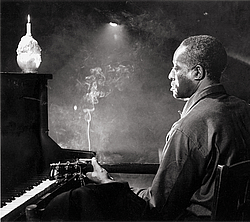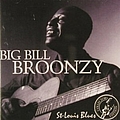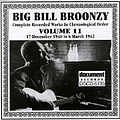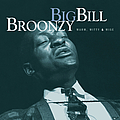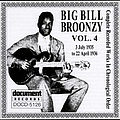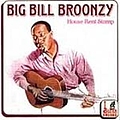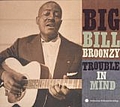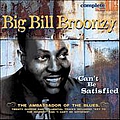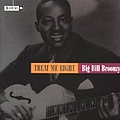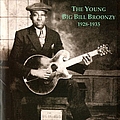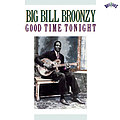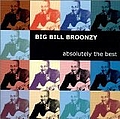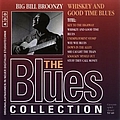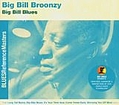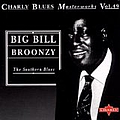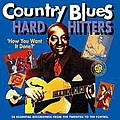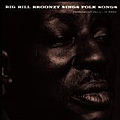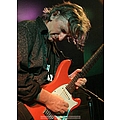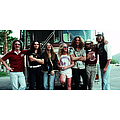Big Bill Broonzy Biography
"Big Bill" Broonzy was a prolific American blues composer, recorder and performer. "Big Bill" was born William Lee Conley Broonzy in Scott County, Mississippi on June 26, 1893 or 1898 (the exact year is unclear). While Broonzy himself claimed to be born in 1893, another source [citation needed] claims that Broonzy had a twin sister named Lannie Broonzy who had proof they were born on June 26, 1898. During this time, it was common for black men to add years to their actual age in order to get a job or join the military, which may very well have been the case for Broonzy as well. Regardless, Broonzy, originally a fiddler, left Mississippi in 1924 for Chicago, where he met Papa Charlie Jackson, who taught him to play guitar. Broonzy first recorded as a self-accompanied singer in 1929. Around 1936, he became one of the first blues singers to use a small instrumental group, including "traps" (drums), acoustic bass and one or more melodic instruments (horns and/or harmonica). These recordings were usually issued as "Big Bill and his Chicago Five." At the time, Broonzy was recording for the American Record Corporation on their line of less expensive labels (Melotone, Perfect Records, et al). In 1939, ARC was acquired by CBS, and Broonzy then appeared on Vocalion (later Okeh) and, after 1945, on Columbia Records. One of his best-known songs was written at that time, Key to the Highway. During this time, Broonzy usually played South Side clubs, and also toured with Memphis Minnie during the 1930s. When the second American Federation of Musicians strike ended in 1948, Broonzy was picked up by the Mercury Records label, for whom he made a handful of records through 1951. After that, Broonzy returned to his solo folk blues roots, and traveled and recorded extensively throughout Europe into early 1956. Although he had been a pioneer of the Chicago blues style and had employed electric instruments as early as 1942, his new, white audiences wanted to hear him play his earliest songs unaccompanied on acoustic guitar -- considering those to be more "authentic". Returning to Chicago in 1956, Boonzy continued to perform, though his health was beginning to falter. He would eventually die of throat cancer in 1958. He is buried in Lincoln Cemetery, Blue Island, Illinois. During his folk blues period, he recorded with Pete Seeger, Sonny Terry, Brownie McGhee and Leadbelly. A considerable portion of his early ARC/CBS recordings have been reissued in anthology collections by CBS-Sony. Other, earlier recordings have been collected on blues reissue labels, as have his later European and Chicago recordings from the 50s. Since Broonzy was not a spectacular electric guitarist in the manner of others of his early-fifties contemporaries, he is not as well known as others of the period, and was not extensively covered during the "British Blues Revival" of the sixties. He did, however, gain some popularity with "Key to the Highway," featured on Derek and the Dominos' Layla and Other Assorted Love Songs. He was an acclaimed acoustic guitar player, and a major source of inspiration to men like Muddy Waters and Memphis Slim. In total, Broonzy recorded over 350 compositions.
Top Big Bill Broonzy Lyrics
Write a comment
What do you think about Big Bill Broonzy? Let us know in the comments below!
Top Big Bill Broonzy Albums
Similar artists
- Rob TognoniBlues/Rock
- Tom KeiferBlues/Rock
- Howlin' WolfBlues
- Gary MooreBlues/Rock
- Eric ClaptonBlues/Rock
- Ronnie Wood70s/Rock
- Ray ThomasRock
- David CoverdaleRock
- Blues Image70s/Rock
